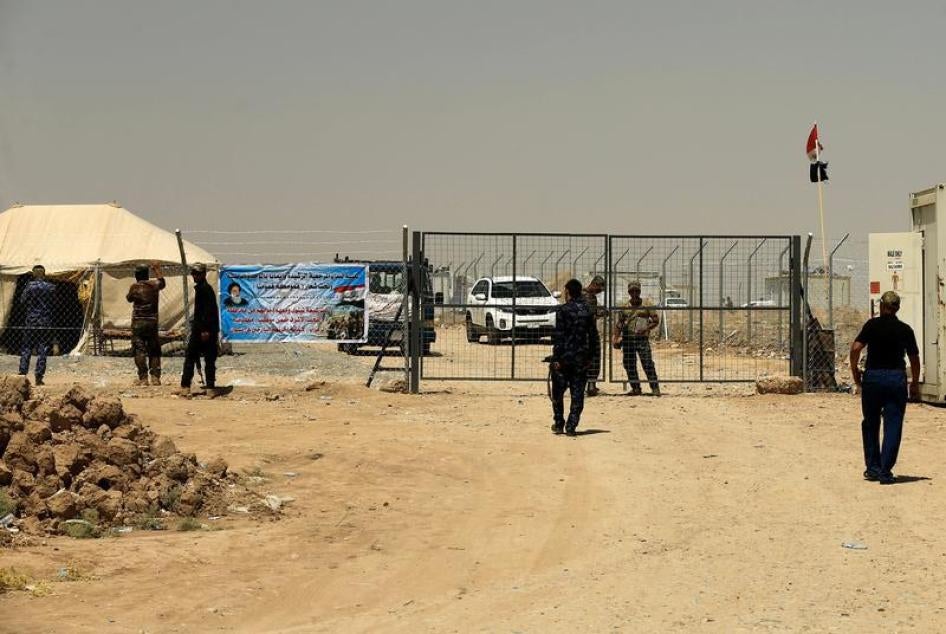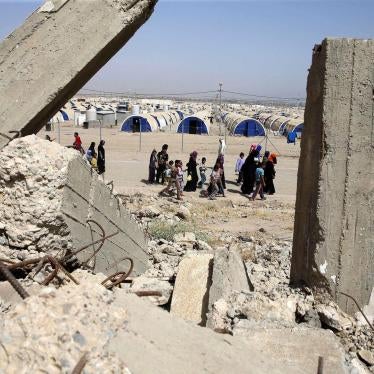The final pocket of Islamic State (ISIS) territory in Syria is being retaken as we speak, and for the first time, Iraqi authorities are explicitly addressing the fate of the suspected Iraqi ISIS fighters and their families who remain there.
On February 13, Iraq’s prime minister announced that Syrian Democratic Forces had arrested many Iraqi ISIS fighters, and preparations were being made to send them and their families back to Iraq, where the families would be put into camps.
But humanitarian workers told Human Rights Watch that the number of family members likely to be sent back to Iraq was unspecified, with estimates ranging from 4,000 to 16,000. Nor is it known where they were originally from, or how long the authorities plan to keep them in camps. Despite this lack of clarity, the transfers are already taking place.
While Iraqi families and ISIS fighters should not be confined indefinitely in camps in Syria, past practice shows there are real concerns about the treatment of these families in Iraq. Iraqi federal authorities, security personnel, and local leaders have routinely placed severe restrictions on family members of suspected ISIS fighters, particularly their right to freedom of movement, holding them against their will in camps for long periods.
Humanitarian agencies told Human Rights Watch that the Iraqi government is asking them to facilitate these transfers from the border to the camps but concerns about the government’s treatment of the families back in Iraq are key. The government should not confine people to camps who have not been charged with a crime other than being related to a suspected ISIS fighter. Doing so would contribute to a form of collective punishment, which constitutes a war crime.
Iraqi family members arriving back at the Iraqi border, who are not suspected of having committed a specific crime, have the right under Iraqi and international law to go home or to choose where they resettle. None should assist the Iraqi government in taking that right away.










